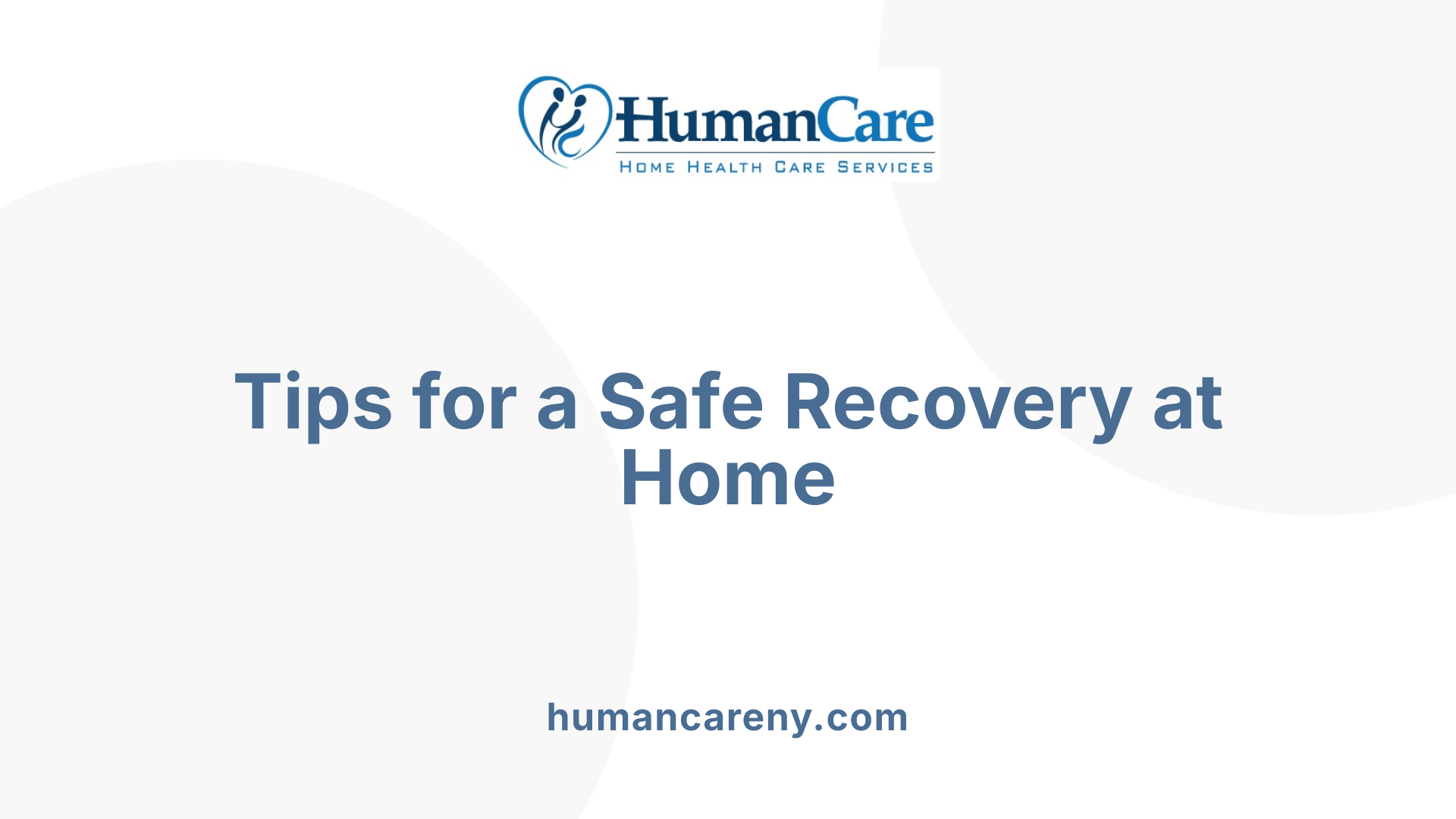How Home Care Services Assist with Post-Surgery Recovery
Enhancing Recovery: The Role of Home Care Services Post-Surgery

Introduction to Home Care in Post-Surgery Recovery
Post-surgical recovery can be a challenging journey, involving both physical healing and emotional adjustment. Home care services have emerged as a vital component in this phase, offering tailored support that ranges from basic daily assistance to medical and therapeutic care. This article delves into how home care services aid post-surgery recovery, exploring the benefits, services, and preparations involved.
Benefits of Home Health Care Services

What is a benefit of home health care services for the patient?
A significant benefit of home health care services for patients is that it allows them to maintain independence while receiving personalized support for daily activities. This includes essential tasks such as walking, bathing, and meal preparation.
Research indicates that older adults recover faster and experience fewer complications when receiving home care compared to hospital stays. Regular monitoring by healthcare professionals ensures early detection of any changes in patients’ conditions, which can prevent unnecessary hospitalizations.
Moreover, the support provided alleviates the burden on family caregivers, who may feel overwhelmed with the demands of post-surgical care. Home health care teams offer education and resources to assist families in follow-up care, creating a comprehensive support system for both patients and their families.
This combination of benefits ultimately enhances patient outcomes, improves quality of life, and allows individuals to manage their health conditions within the comfort of their own homes.
Insurance Coverage for Post-Surgery Home Care

Does insurance cover home health care after surgery?
Insurance coverage for home health care after surgery can vary based on the specifics of the insurance policy. Medicare Part A provides coverage for home health care if you are homebound and in need of part-time or intermittent skilled services. This includes nursing care or therapy. To qualify, a doctor must assess your need for care and order it through a Medicare-certified agency.
Medicaid may offer coverage for home health services as well, but this varies by state, and eligibility criteria can be different and complex. It's essential to check the local Medicaid guidelines in your specific state.
Furthermore, private health insurance plans often cover short-term home health care post-surgery, primarily focusing on medically necessary care during recovery. Before arranging for home health care services, it’s advisable to consult your insurance provider to understand the extent of your coverage and any potential out-of-pocket costs.
Preparing Your Home for a Safe Recovery

How can I prepare my home for a safe post-surgery recovery?
To create a safe environment for your recovery, start by removing tripping hazards such as electrical cords, throw rugs, and clutter from pathways. A clear and tidy space helps prevent falls, which are critical during recovery.
Consider designating a comfortable recovery area located on the main floor. This space should include necessary items such as water, medications, and a phone within easy reach to minimize unnecessary movement. Install grab bars in the bathroom for added safety, and think about utilizing a shower chair to make bathing easier and safer.
Ensure that furniture is appropriately arranged and at a suitable height for you to access easily. Keep frequently used items within reach to limit bending and stretching, which can strain your body after surgery. Lastly, it can be invaluable to arrange for help during the first few days post-surgery, allowing you to focus solely on your recovery without the added stress of daily tasks.
Supportive Role of Home Care Services

How can home care services support someone recovering from surgery?
Home care services are an essential component of recovery for individuals who have undergone surgery. They provide both practical and emotional support tailored to the unique needs of each patient. One of the primary ways these services assist is through medication management, including reminders that ensure patients take their prescriptions on schedule. This minimizes potential complications and promotes a smoother recovery process.
In addition to medication support, caregivers help with daily activities such as bathing, dressing, and meal preparation. These tasks can be particularly daunting during recovery, making the assistance of a professional caregiver invaluable. Light housekeeping and grocery shopping services further alleviate stress, allowing patients to focus on healing rather than worrying about household chores.
Transportation services provided by home care agencies ensure that patients can attend important follow-up appointments, fostering continuity of care. On the emotional side, caregivers offer companionship, which is crucial for addressing feelings of isolation and anxiety that may arise after surgery. This holistic support creates a nurturing environment conducive to faster recovery and reestablishing independence.
Varied Services Available for Recovery
What types of post-surgery home care services are available?
Post-surgery home care services encompass a wide range of support tailored to aiding recovery, including both temporary and long-term options. These services are designed to assist patients in managing daily activities critical to their healing process.
Types of Services
Some of the primary services include:
- Non-Medical Care: This includes help with daily activities such as meal preparation, personal care (bathing, dressing), mobility assistance, and companionship. These services help alleviate stress and ensure comfort at home.
- Medical Care Services: Skilled nursing is provided for wound care management, pain management, and therapy services like physical or occupational therapy. These medical interventions are crucial for monitoring recovery and ensuring medical needs are met promptly.
- Customized Support: Care plans are tailored to individual needs, ensuring that every patient's specific requirements are addressed. This includes conducting home assessments to identify and mitigate hazards, enabling a safer recovery environment.
Benefits of Home Care
Patients receiving in-home care typically experience quicker recovery times and lower readmission rates compared to those who stay in a hospital setting, benefiting from the familiar and comfortable surroundings of their own home.
Finding Financial Assistance for Home Care

How do I find financial assistance for home care after surgery?
To find financial assistance for home care after surgery, you can explore various resources tailored to your needs. Government programs like Medicaid and Medicare play a significant role by helping cover medical expenses, including home care services.
Charity care programs are another avenue to consider, as they may help offset costs not fully covered by insurance. Notable options include:
- Patient Advocate Foundation: Offers small grants for extensive treatment-related costs.
- Heart Valve Financial Aid Fund: Specifically aids patients with expenses tied to heart valve surgery.
- HCA Florida Healthcare: Provides various financial assistance options if you find yourself uninsured or under-insured.
By reaching out to these organizations, you can find effective support during your recovery.
How can I receive assistance at home if I have no one to help after surgery?
If you are without support after surgery, there are several pathways to ensure you receive the necessary assistance at home. Consider asking your doctor for recommendations to nursing agencies or caregivers who specialize in post-surgical care.
You have the flexibility to hire professional caregivers for varying durations, from just a few hours a day to comprehensive full-time support.
Additionally, local community organizations or hospitals may have resources to assist individuals recovering at home. Checking your insurance policy is vital, as it may cover some of these essential services, ultimately easing your financial concerns during recovery.
Conclusion
Home care services provide a comprehensive support system for individuals recovering from surgery, addressing both medical and non-medical needs in a familiar environment. They're not just about supporting physical recovery, but also offering emotional reassurance and reducing stress for both patients and their families. By understanding the various aspects of home care, patients can make informed choices that enhance their recovery, potentially leading to faster healing and improved overall well-being. Whether through insurance programs or customized care solutions, the availability and accessibility of these services empower patients and their families to focus on what truly matters: healing and returning to normal life.
References
- Post-Hospital and After-Surgery Care - Homewatch CareGivers
- After Surgery In-Home Care – Colorado Help at Home
- 10 Benefits of Home Healthcare After Surgery - Parentis Health
- Post-Operative Home Care | IU Health
- Post Operative Care Services | In-Home Care - Nurse Next Door
- Why Home Care is the Best Option for Post-Surgery Recovery
- After-Surgery Home Care: Tips for Seniors and Caregivers
- Recovery from Surgery at Home with a Private Nurse - NurseRegistry
- Post Surgery Home Care- NOVA HOME HEALTH CARE | Fairfax, VA



































































































